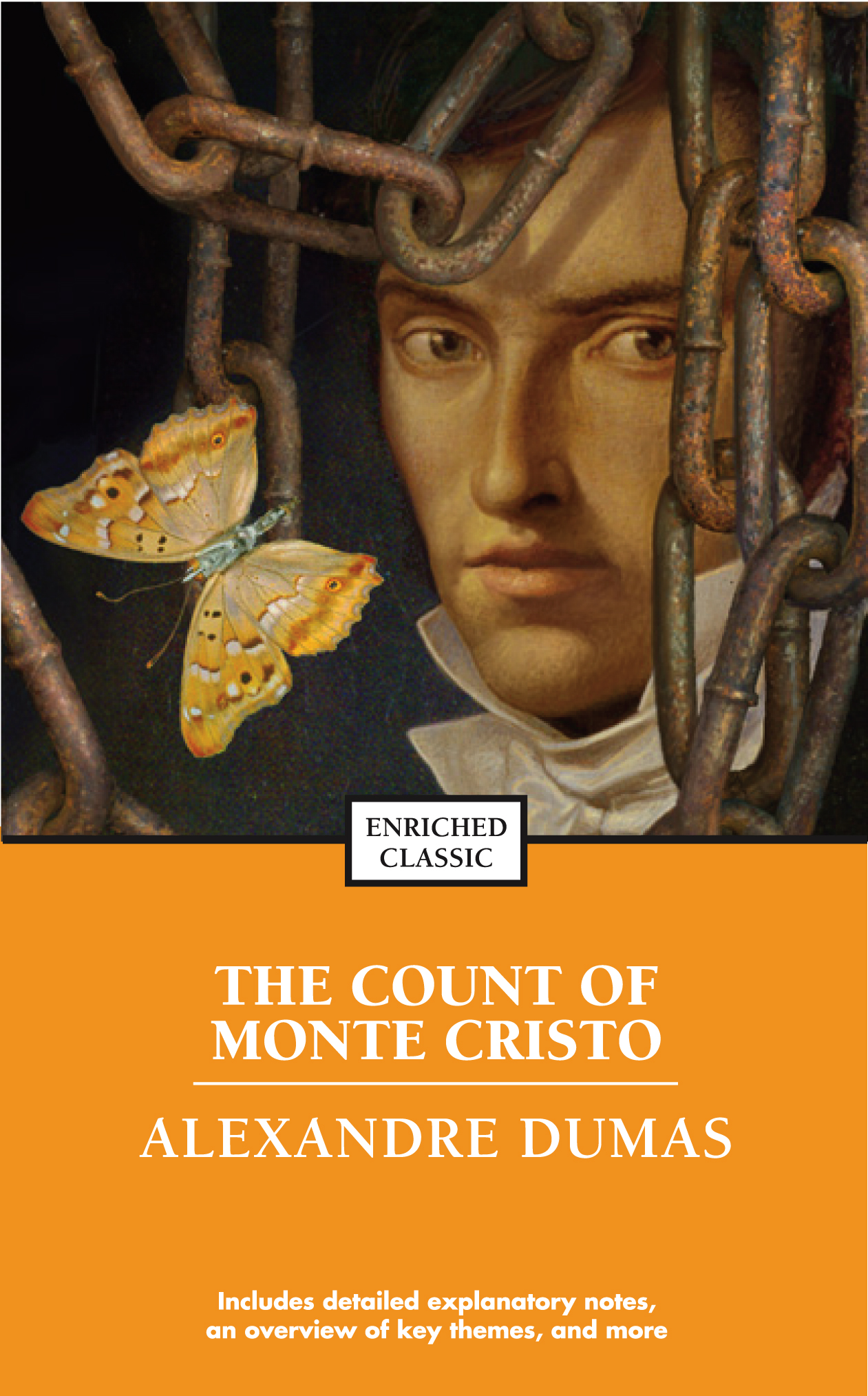A Critical Review Of Alexandre Dumas' The Count Of Monte Cristo

Table of Contents
A Masterclass in Revenge and Justice
The central theme of The Count of Monte Cristo is undoubtedly revenge. Edmond Dantès' unjust imprisonment fuels a burning desire for retribution, transforming him from a naive sailor into a cunning and resourceful mastermind. His meticulous planning, spanning years, showcases Dumas' skill in crafting a suspenseful narrative. However, the novel also delves into the moral ambiguity surrounding revenge. Is it ever truly justified? Does it bring true satisfaction, or does it ultimately consume the avenger?
- Key moments of revenge: The systematic dismantling of Fernand Mondego's life, the financial ruin of Danglars, and the exposure of Villefort's crimes are all meticulously depicted, showcasing the depth of Edmond's planning and the devastating consequences for his enemies.
- Comparing Edmond's actions with those of his enemies: The novel forces readers to consider whether Edmond's actions are truly different from the betrayals that initially sent him to prison. While his enemies acted out of greed and ambition, Edmond's actions are fueled by a thirst for justice, but this line often blurs.
- Justice vs. Vengeance: The narrative subtly questions the nature of justice itself. Is Edmond dispensing justice or enacting vengeance? This crucial question remains a point of discussion amongst readers and critics, highlighting the complexity of the novel's central theme.
Compelling Characters and their Development
The Count of Monte Cristo boasts a cast of richly developed characters. Edmond Dantès' transformation from an innocent young man to the enigmatic Count is the novel's centerpiece. Fernand Mondego's ambition and jealousy, Mercédès' naivete and later regret, and Danglars' insatiable greed are all explored with remarkable depth. These characters are not simply good or evil; they are complex individuals driven by their desires and flaws.
- Character profiles: Edmond Dantès' journey is one of profound loss and ultimate triumph; Fernand Mondego's rise and fall illustrate the corrupting influence of ambition; Mercédès' story showcases the pain of betrayal and lost innocence; and Danglars' relentless pursuit of wealth highlights the destructive nature of avarice.
- Character relationships: The shifting dynamics between Edmond and his enemies, particularly Fernand and Mercédès, form the emotional core of the narrative. The impact of their relationships on the plot underscores the importance of human connection and the devastating consequences of betrayal.
- Character foils: The contrasting characters of Edmond and Fernand, for instance, serve as effective foils, highlighting the different paths choices can lead to.
The Allure of Adventure and Intrigue
Beyond its exploration of revenge and justice, The Count of Monte Cristo is a thrilling adventure novel filled with suspenseful plot twists. From the dark depths of the Chateau d'If to the bustling streets of Paris and Marseilles, the novel's diverse settings add to its captivating atmosphere. The pacing is masterful, skillfully building suspense and keeping the reader engaged.
- Key plot points: The discovery of the treasure, Edmond's escape from prison, his meticulous planning of revenge, and the eventual unraveling of his enemies’ lives are all pivotal moments that drive the narrative forward.
- Significance of settings: The desolate Chateau d'If symbolizes Edmond's imprisonment and suffering; the vibrant city of Paris represents his rise to power and the complexities of society; Marseilles, his birthplace, forms a nostalgic backdrop.
- Suspense-building techniques: Dumas utilizes cliffhangers, unexpected revelations, and dramatic confrontations to maintain the narrative's momentum, creating a truly captivating reading experience.
Critiques and Limitations of The Count of Monte Cristo
Despite its merits, The Count of Monte Cristo is not without its shortcomings. Its sheer length can be daunting for some readers, and the melodramatic nature of certain scenes might feel excessive to modern sensibilities. Some plot contrivances, particularly regarding the improbable coincidences that facilitate Edmond's revenge, can strain credulity.
- Plot contrivances: Certain events feel overly convenient, serving the plot more than enhancing realism. This can sometimes detract from the immersive experience.
- Areas for improvement in character development: While the main characters are well-developed, some secondary characters feel less nuanced.
- Overall assessment of shortcomings: The novel’s length and occasional melodramatic tendencies, while contributing to its larger-than-life feel, could be perceived as weaknesses by some readers.
A Timeless Tale of Revenge – A Final Verdict on The Count of Monte Cristo
In conclusion, Alexandre Dumas' The Count of Monte Cristo remains a powerful and compelling work of literature. Its exploration of revenge, justice, and the complexities of human nature continues to resonate with readers today. While it possesses certain limitations, such as its length and occasional melodramatic elements, its captivating plot, richly developed characters, and enduring themes far outweigh any shortcomings. The novel's enduring appeal lies in its ability to explore timeless themes in a thrilling and engaging manner. Have you experienced the captivating world of The Count of Monte Cristo? Share your thoughts in the comments below!

Featured Posts
-
 Nba Fans Discuss Russell Westbrooks Game In Nuggets Warriors Matchup
May 04, 2025
Nba Fans Discuss Russell Westbrooks Game In Nuggets Warriors Matchup
May 04, 2025 -
 Edwards Vs Berlanga A Side Demands Star Status Clash And Benavidez Avoidance Explained
May 04, 2025
Edwards Vs Berlanga A Side Demands Star Status Clash And Benavidez Avoidance Explained
May 04, 2025 -
 Britains Got Talent Teddy Magics Live Stunt Causes Uproar
May 04, 2025
Britains Got Talent Teddy Magics Live Stunt Causes Uproar
May 04, 2025 -
 Colonial Downs Hosts Virginia Derby Stones Big Announcement
May 04, 2025
Colonial Downs Hosts Virginia Derby Stones Big Announcement
May 04, 2025 -
 Early Ufc 314 Odds A Look At The Volkanovski Vs Lopes Main Event
May 04, 2025
Early Ufc 314 Odds A Look At The Volkanovski Vs Lopes Main Event
May 04, 2025
Latest Posts
-
 Exclusive Photos Bradley Cooper Directs Will Arnett In New York For Is This Thing On
May 04, 2025
Exclusive Photos Bradley Cooper Directs Will Arnett In New York For Is This Thing On
May 04, 2025 -
 Will Arnett And Bradley Cooper Spotted Filming Is This Thing On In Nyc
May 04, 2025
Will Arnett And Bradley Cooper Spotted Filming Is This Thing On In Nyc
May 04, 2025 -
 Bradley Cooper Directs Will Arnett On Is This Thing On Set Exclusive Photos
May 04, 2025
Bradley Cooper Directs Will Arnett On Is This Thing On Set Exclusive Photos
May 04, 2025 -
 Is This Thing On New Photos Of Bradley Cooper And Will Arnett On Set
May 04, 2025
Is This Thing On New Photos Of Bradley Cooper And Will Arnett On Set
May 04, 2025 -
 New York City Set Photos Bradley Cooper Directs Will Arnett In Is This Thing On
May 04, 2025
New York City Set Photos Bradley Cooper Directs Will Arnett In Is This Thing On
May 04, 2025
